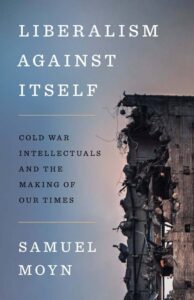
The Cold War roots of liberalism’s present crisis.
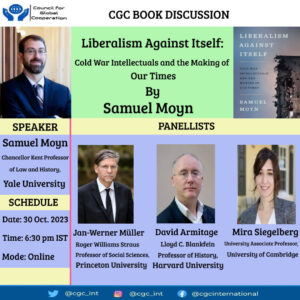
By the middle of the twentieth century, many liberals looked inquisitively at the world modernity had brought about, with its devastating wars, rising totalitarian power and permanent nuclear terror. They believed that, far from offering a solution to these problems, the ideals of the Enlightenment, including emancipation and equality, had instead created them. The leading historian of political thought Samuel Moyn, in his new book Liberalism Against Itself (Yale University Press, 2023) argues that the liberal intellectuals of the Cold War era—among them Isaiah Berlin, Gertrude Himmelfarb, Karl Popper, Judith Shklar, and Lionel Trilling—transformed liberalism but left a disastrous legacy for our time.
In his iconoclastic style, Moyn questions and outlines how Cold War liberals redefined the ideals of their movement and renounced the moral core of the Enlightenment for a more dangerous philosophy: preserving individual liberty at all costs. In denouncing this stance, as well as the recent nostalgia for Cold War liberalism as a means to counter illiberal values, Moyn presents a timely call for a new emancipatory and egalitarian liberal philosophy—a path to undoing the damage of the Cold War and to ensuring the survival of liberalism.
SPEAKER:

Samuel Moyn
Chair, Global Europe Program and Member, Board of Governors, CGC; Chancellor Kent Professor of Law and History, Yale University
PANELLISTS:
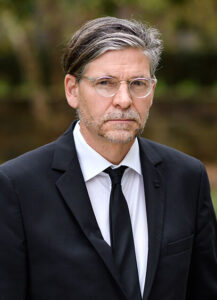
Jan-Werner Müller
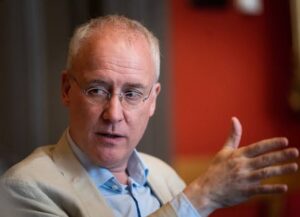
David Armitage
Lloyd C. Blankfein Professor of History, Harvard University
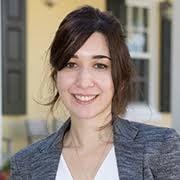
Mira Siegelberg
University Associate Professor in the History of International Political Thought, University of Cambridge
MODERATOR:

Soumava Basu
President and Founder, CGC
Thank you for your interest in this event. To attend, please email at info.cgcinternational@gmail.com